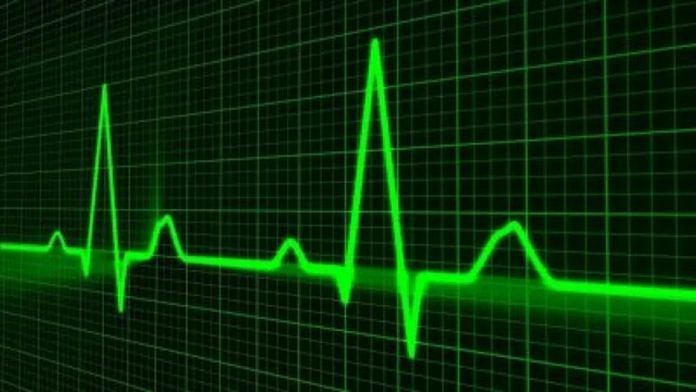New Delhi: The first global trial of an artificial intelligence (AI) tool that can predict 10-year risk of deadly heart attacks has shown that in about 45 percent of patients with chest pain, treatment could be improved, and the lives of thousands not yet identified but at risk for heart attacks could be saved.
Findings of the trial, carried out by researchers associated with the University of Oxford and funded by the British Heart Foundation, were presented at the American Heart Association’s scientific session on 13 November.
The trial analysed data from more than 40,000 people undergoing routine cardiac computed tomography (CT) scans — a standard test to identify any narrowings or blockages in the coronary arteries — at eight UK hospitals.
Participants in the trial were followed up for a median of 2.7 years.
According to the researchers, in around three quarters of people who undertake cardiac CT scans, there is no clear sign of significant narrowings, so patients are often reassured and discharged. A large number of these people, however, go on to have a heart attack because small, undetectable narrowings may break up if they are inflamed, blocking the arteries.
As part of the trial, the researchers used a new AI tool, trained using information on changes in the fat around inflamed arteries — which can indicate the risk of events such as heart attacks — as well as information on narrowings of the arteries and other clinical risk factors.
Testing the AI tool on an additional 3,393 patients over 7.7 years revealed it could independently and accurately predict risk of cardiac event.
Based on the findings, the researchers have estimated that implementing the technology in the UK could lead to over 20 percent fewer heart attacks and 8 percent fewer cardiac deaths and strokes, among those using it.
According to the World Health Organisation, an estimated 17.9 million people died from cardiovascular diseases (CVD) in 2019, representing 32 percent of all global deaths. Of these deaths, 85 percent were due to heart attacks and stroke.
Going ahead, the technology can have huge benefits for a country like India too which, according to the world health body, reported 63 percent deaths due to non-communicable diseases, of which 27 percent were attributed to CVDs (data for 2018).
Dr Jaideep Menon, adult cardiologist at Amrita Hospital in Kochi, explained that in the realm of CVDs, various scores are tailored to races and populations to help calculate 10-year or lifetime risk.
However, these scores often lack significant predictive value, he said, pointing out that a study on patients admitted for myocardial infarctions (heart attacks), for instance, revealed that retrospective analysis identified only about half of the victims as high risk.
“An AI-enabled CT coronary angiogram, with the potential to reduce heart attacks by 20 per cent and deaths by 8 per cent, therefore, is a promising development,” Menon said.
This is especially noteworthy considering that someone succumbs to heart attacks every 1.5 seconds globally, he said, adding that the new AI tool could change the landscape of cardiovascular treatments.
Also Read: Young people getting heart attacks no surprise. Look at their plate
How the tool works
Dr C. Sridevi, consultant cardiologist at DPU Private Super Speciality Hospital in Pune, explained that the AI tool developed by the British researchers measures coronary plaque burden on cardiac CT scans and predicts heart attacks.
“Plaque build-up (fat deposition) in coronary arteries causes the narrowing of arteries and increases the likelihood of a heart attack,” she said.
Though coronary computed tomography angiography (CTA) can estimate the severity of coronary artery narrowing, there hasn’t been a simple, automated, and rapid way to measure the plaque burden in CTA images until now, Sridevi added.
As part of the latest study, the researchers analysed CTA images from nearly 2,000 people who had undergone a coronary CT angiography at 11 sites worldwide.
The researchers then trained their AI algorithm to measure plaque burden based on previous analyses of coronary CTA images that had been studied by trained doctors. They then found that the measurements made by their AI algorithm accurately predicted heart attack risk within five years for most of the people who were part of their multi-centre trial.
AI algorithms can quantify plaque burden in CTA images in just five-six seconds, a process that manually takes an expert 25-30 minutes.
The researchers then analysed data from 40,000 people undergoing routine cardiac CT scans at eight UK hospitals.
Later, they used the new AI tool trained using the information on change in the fat around inflamed arteries, as well as information on the narrowing and plaque burden of arteries and other clinical risk factors.
“In a world-first pilot study, the team provided AI-generated risk scores to clinicians for 744 consecutive patients which resulted in changes in treatment plans by treating physicians. This could result in the prevention of heart attacks in high-risk patients,” Sridevi said.
Dr Komal Pawar, consultant cardiologist at SRV Hospital in Mumbai, pointed out that early detection of potential heart issues allows for targeted interventions, such as lifestyle modifications or medication, reducing the risk of fatal heart attacks.
“As these AI tools continue to evolve, the potential to save lives on a global scale becomes increasingly tangible, marking a transformative era in cardiovascular health and preventive medicine,” she stressed.
(Edited by Nida Fatima Siddiqui)
Also Read: India recorded 13 lakh stroke cases in 2019, highest in Southeast Asia, finds Lancet study



